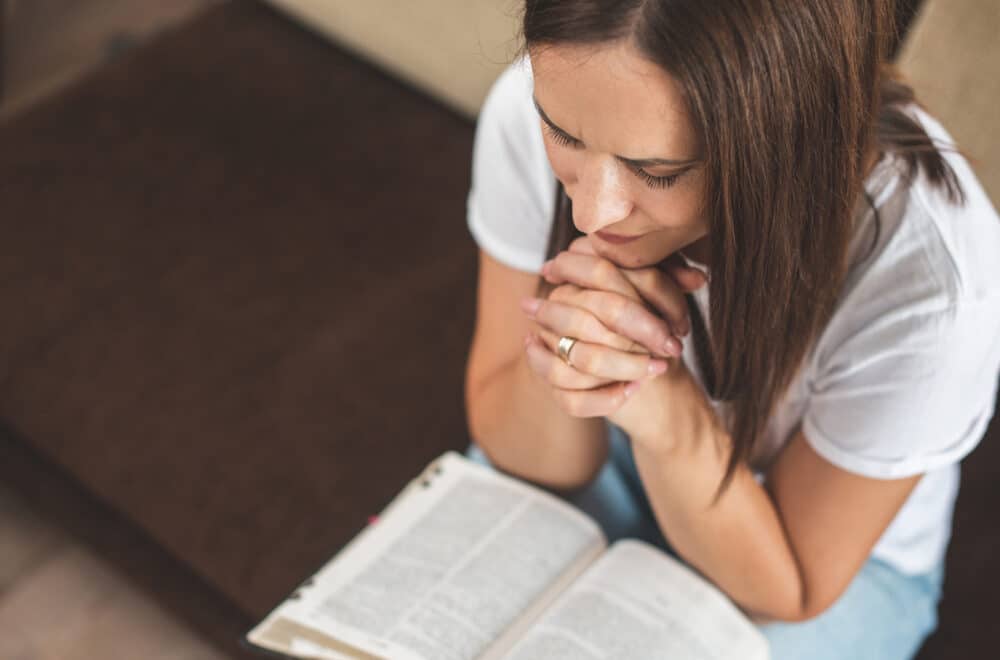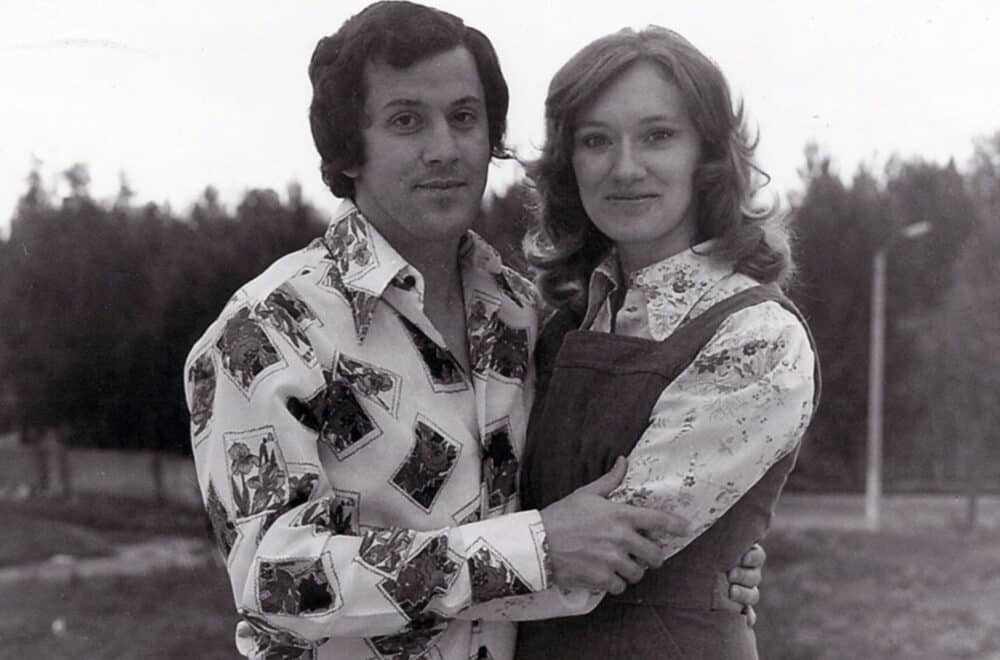Why do believers in a land of plenty need to ask for daily bread?
“Most American Christians don’t need God.”
Gertrude, a missionary to Haiti, startled me with this answer to my question about how American Christians differed from Haitian Christians.
“American Christians have everything they need,” Gertrude continued. “If they don’t pray or read the Bible for weeks, it makes little difference in their daily lives. They still have food to eat, a place to sleep, regular income. They don’t need to practice their faith every day.”
For many Christians in the United States, that’s probably true, I thought. Gertrude lives among impoverished people. That seems to give her a deeper understanding of how God provides.
My discussion with Gertrude made me take a new look at a familiar phrase in the Lord’s Prayer: “Give us today our daily bread” (Matthew 6:11). In our society, even a young child’s allowance can buy a loaf of bread. What does this request mean for those of us who don’t worry much about putting food on the table? What truths are we missing as we slide over these words?
The God of All of Life
I used to wonder just what “daily bread” really referred to. After all, the Lord’s Prayer starts out with sweeping requests about gloriously spiritual themes: the holiness of God, the coming of His Kingdom, the taste of Heaven on earth. Why did Jesus suddenly tell us to pray for something as mundane as bread?
The Greek word for bread, arton, used in this prayer represents that which is essential to sustain life. When Jesus taught us to pray for “our daily bread,” He was teaching us that God wants us to depend on Him for our everyday needs.
So “daily bread” refers not just to food but also to that which we need for basic comfort and well-being: clothing, shelter, and other things necessary to support and continue our lives. Gertrude is intimately experienced in how we need God’s gracious provision for basic survival. God is active in every area of our daily activities—a lesson some of us forget because we don’t have to struggle to survive.
The Source of All Good Gifts
When Jesus tells us to pray, “Give us … our daily bread,” He is speaking to all of us—rich and poor alike. Whether we live in the heartland or in Haiti, we all have the same essential needs. We are frail, transient beings who can’t even add a day to our lives.
Here in the United States, we place a premium on self-sufficiency and individualism. We try to obtain what we need—and want—on our own. We tend to make our security dependent on a savings account, hard work, or regular income, rather than on the One whose gracious provision makes each new day possible.
Think about how rapidly world situations change. Governments are formed and toppled—some violently, some quietly. Corporations change ownership or go out of business. Conflicts in countries halfway around the globe impact fuel prices, drops in the stock market threaten personal loss.
Asking God to give is the key to His treasury of resources. A child makes bold requests of a parent because she instinctively trusts the parent to provide for her. Likewise, we must present our needs to our heavenly Father, asking Him to supply them (see Philippians 4:19).
Last year I resigned from a corporate management position and began running a small business with my wife, Amanda. Leaving the comfort of the corporate nest was hard. Yet God has met our financial needs every month since. When we’ve nearly finished one project, another one comes in. It’s as if God is saying, “I want you to have security in Me—not in what you earn, not in what you can do.”
My Bread, Your Bread, Our Bread
Throughout Scripture, God urges us to pray about our individual needs. Yet here, Jesus says to ask for “our daily bread”—not “my daily bread.” What’s the lesson here?
Jesus is calling us to identify with all people. In the community of humanity, we are inextricably dependent on others.
When we pray this prayer, we are reminded to think about and pray for them, to love them as ourselves. Our focus should not remain exclusively on our own needs and wants.
One Day at a Time
My discussion with Gertrude brought another contrast into view: the Haitians’ struggle for daily survival as opposed to our society’s priority on long-term security. We tend to take our daily bread for granted and instead occupy ourselves with insurance, retirement accounts, and financial management. Our anxieties often shape our outlook on the future.
Only in the Lord’s Prayer does this word for daily—epiousion—occur. It can be interpreted to mean “sufficient for each day.” Jesus is asking us to trust God for today’s needs while we let go of tomorrow’s anxieties.
Most of us are inclined to pray for a year’s bread, aren’t we? We worry about the future because we’re afraid to trust God for today and leave our future in His hands.
Back to the Basics
Since Amanda and I began asking God for our daily provision, several things have been happening. We’re learning how to live a day at a time without fear of tomorrow. We’re learning to depend on His ample supply—knowing that the ways and amounts He chooses to give are often different from what we’d choose.
This prayer reminds us to reevaluate what is essential. When we pray this prayer authentically, we’re asking God to allow us to reflect moderation and simplicity as we enjoy and acquire material things. We’re praying for the basics, not the “extras.”
We can count on God’s faithfulness to keep His promises. We will experience that faithfulness as we explore what “give us today our daily bread” really means. As we step out in faith, we’ll discover it’s a firm foundation we’re standing on, not thin air. We will meet the God who truly makes a difference in our daily lives.
Stephen W. Sorenson is a freelance writer and editor based in Colorado Springs, Colorado. He has written numerous books, including Like Your Neighbor? Doing Everyday Evangelism on Common Ground.
D! Adapted from Discipleship Journal, Issue 62, March 1991. Used by permission of NavPress.




The print is very small. Do you have a large print version?
Hi Lillian. The font on the page is set through the theme on the website. However, you can “zoom” in on the page using the keyboard on your computer (press “CTRL” and “+” on a Windows computer, or press “Command” and “+” on a Mac). To Zoom back out, just use the same command with the “-” key. We hope that helps!